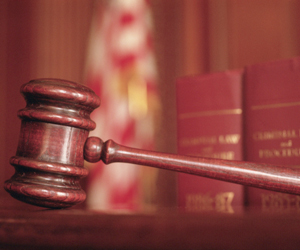State is Separate from State Agencies: Sovereign Immunity Applies,
Appeals Court Says
 By Joe Forward, Legal Writer, State
Bar of Wisconsin
By Joe Forward, Legal Writer, State
Bar of Wisconsin
Dec. 12, 2012 – A business sued the state, alleging one of its
agencies negligently approved a construction project that caused the
business property to flood. But an appeals court recently dismissed the
case on sovereign immunity grounds, because the state “is a
separate legal entity from its agencies.”
Hoops Enterprises III LLC named the State of Wisconsin in a lawsuit
alleging that negligent decisions by Wisconsin Department of
Transportation (DOT) agents caused flooding and damage to the business
property. Hoops did not name the DOT as a party to the suit and did not
serve the DOT with notice.
The Washington County Circuit Court ruled that Wis. Stat. sections 88.87
and 32.18
authorized the business’s claims, indicating the state’s
consent to be sued under the circumstances alleged. But in Hoops
Enterprises III LLC v. Super Western, Inc., 2012AP62 (Dec. 12, 2012), an appeals court
disagreed.
“We reverse as the statutes relied upon by Hoops do not clearly
and expressly constitute consent by the state to be sued and the
legislature has not consented to tort claims against the State,”
wrote Judge Paul Reilly for a three-judge panel, requiring dismissal
upon remand.
Both sections 88.87 and 32.18 create causes of action against the DOT
relating to damages caused by improper road or highway construction or
grading. However, those provisions don’t create causes of action
against the state, the actual party defendant named in the lawsuit.
“The State was not a proper party for claims against the DOT as
the two are distinct legal entities,” Judge Reilly wrote.
“Further, service on the State of a summons and complaint that
named the State and not the DOT as a party does not constitute service
on the DOT necessary to establish personal jurisdiction.”
The District II Appeals Court rejected the plaintiff’s claim that
service on the state is enough to commence lawsuits against state
agencies that consent to suit, and also noted that sections 88.87 and
32.18 don’t specifically authorize plaintiffs to bring negligence
actions:
“As we have found that none of the statutes relied upon by Hoops
clearly and expressly authorize suit against the State, we also find
that none of the statutes authorize negligence claims against the State.”
